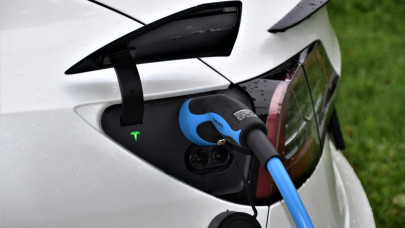How does UniCredit Romania integrate ESG considerations into its daily operations and decision-making processes?
At UniCredit Romania, we have a clear ESG strategy by which we are building on strong fundamentals to deliver value and achieve our goals in our daily operations and decision-making processes. We are enriching our risk and lending approach, by integrating Climate & Environmental Risk in the Risk Management Framework and incorporating ESG risk into credit decisions and collateral valuation. Moreover, Net Zero factors are being embedded into our core processes, alongside the strengthening of the ESG ecosystem with partnerships and collaborations to deliver products and innovation, as well as to support a just and fair transition. Our behavior also revolves around helping communities to achieve sustainability through education and volunteering.
What are the specific goals for 2024 in terms of ESG?
In 2024, UniCredit Romania strives to implement more products with E&S components, aiming to create long-term value and channel capital into projects that not only create economic value added, but also benefit society, and do not harm the environment. We are searching to implement new and innovative financing opportunities and to establish strong partnerships to deliver value to our customers and stakeholders. Supporting communities is very important to us, so we've planned a series of activities and projects solely focused on creating better conditions for them. In areas like education, digital innovation, and entrepreneurship we actively support the aforementioned projects, Teach for Romania, Junior Achievement, the 5th edition of StartMajor, as well as other projects: Games in School, RomaESTI in partnership with EA Academy, and the Brand Minds Conference. On health and social matters, we are collaborating with “Zi de Bine” Association on five projects, and with “Volunteer for Life” Association on 2 projects (the construction of a new Regina Maria Clinic for disadvantaged communities), and many more. Moreover, UniCredit's employees have the opportunity to engage in these programs as volunteers.
How does UniCredit Bank Romania assess a company's ESG performance when considering it for green financing?
When considering green financing, UniCredit Bank Romania seeks clients able to fulfill requirements like the following: have ambitious targets and implementation strategy, Net-Zero aligned KPIs to monitor progress, comprehensive and transparent disclosure, clear governance mechanisms and accountability processes, public commitments to achieve net-zero emissions until 2050, the inclusion of the assessment of a clearly defined science-based strategy for achieving the targets provided by an independent technical reviewer (e.g. targets validated by Science Based Targets Initiative), as well as an annual emission reporting during the lifetime of the loan, and many more.
These criteria supported by public disclosure and commitment to targets will ensure that the financing is provided for decarbonization purposes, building credibility with all stakeholders, and avoiding greenwashing. Consequently, the borrower's disclosure of a credible and forward-looking transition plan is vital for an effective assessment.
How does UniCredit Bank Romania measure the environmental impact of its green financing portfolio?
To incorporate and adequately assume the risk generated by climate change, the Bank has increased the level of granularity about the “steering signals” related to the relevant activity sectors, considering that the impact generated can be different from one subcategory to another, within the same industry. The credit risk strategy defined at the industry level also includes the impact of climate and environmental risk within the "steering signals".
Within the lending process, the Bank implemented a transition risk assessment questionnaire, to assess the vulnerability and potential economic impact on Corporate customers with significant exposures, designed on three key dimensions: the level of the current exposure, the level of the future vulnerability, and the economic impact.
Doing so, UniCredit Bank takes into consideration several topics that may lead to increased credit risk, for example, the income of the counterparties and the value of assets that are subject to the transition to a low-carbon economy or production processes that are subject to significant changes to minimize the effects of pollution.
What are the biggest challenges UniCredit Romania faces in implementing its ESG strategy and in promoting green financing in the Romanian market, and how are you working to overcome them?
UniCredit has embedded the pillars Environmental, Social, and Governance in its fundamental business model. This is to build a sustainable future for the communities we operate in, and the families, individuals, and small businesses that form them. Therefore, for UniCredit in Romania, one of the main priorities was the implementation of the local ESG strategy. We have adopted local objectives for both green financing and social financing, and we supported our clients in the transition to a more sustainable and fair economy. We continued to finance businesses in the green energy field, renewable energy, and energy efficiency, while green mortgage loans for individuals continued to be one of the most requested products. Regarding carbon footprint, we started the implementation of our local strategy, in line with UniCredit Group's, which joined the Net Zero Banking Alliance.
The regulatory landscape is currently building up in Romania, but for now, the emphasis lays on the clients' education on sustainability topics and their voluntary measure to disclose their environmental impact. The future of ESG in Romania looks bright - with the help of CSRD, more companies will have to be transparent on ESG topics, making green financing more accessible on the Romanian market. Access to reliable and comprehensive ESG data, particularly for the companies operating in Romania, can also be a challenge that we face.













